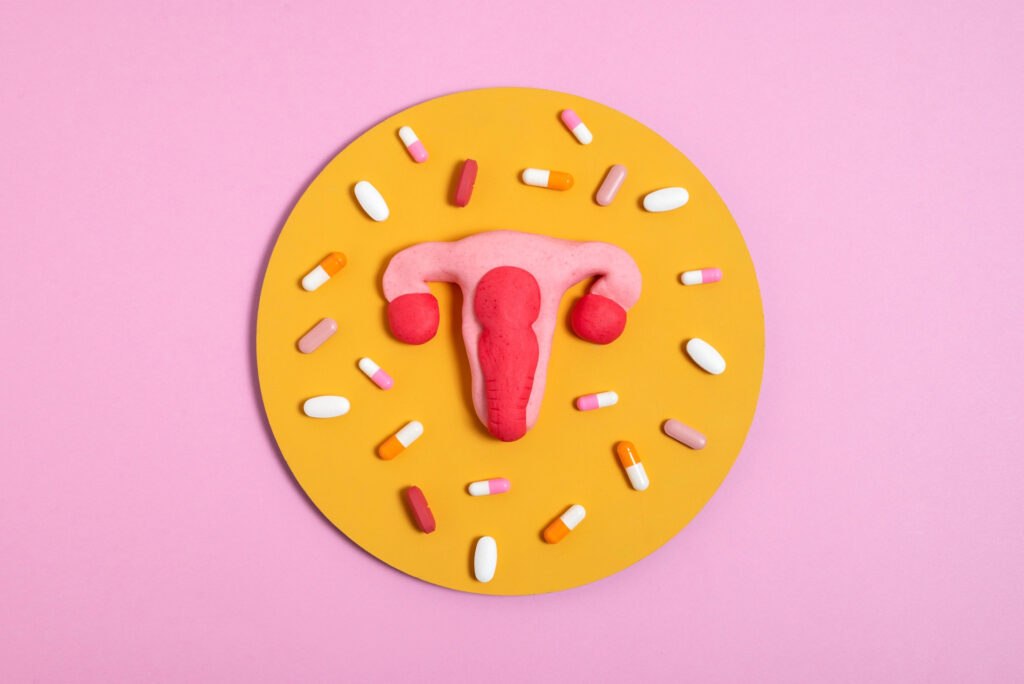Federated Health Charities’ mission is to improve the health and quality of life of all Ontarians by supporting 21 different health charities providing critical services to those experiencing, or affected by, illness. We believe education and prevention are key parts of supporting the health of our communities, so our weekly Health Hint series strives to provide tangible and easy to implement hints and tips on how to maintain your health, prevent disease, and enjoy increased quality of life. Check out our latest Health Hint on reproductive hormones. We hope you find it helpful. If you would like to join our efforts to support the health of Ontario, please consider a donation to Federated Health Charities.
Most of us are aware, in a general sense, of what reproductive hormones are but many of us don’t really understand what they really do and how they impact us. This article will aim to provide you an introductory understanding of what reproductive hormones are, their function ion our bodies and how they can become imbalanced.
What are reproductive hormones?
Hormones are sort of like the air traffic controllers of your body, sending signals to the different parts of your body, letting it know exactly what to do and when to do it. These signals play important roles in many areas of your body, including regulating metabolism, reproduction, growth and development, your stress and inflammation responses, and much more.
When speaking or reproductive hormones, specifically, we often hear them referred to male or female sex hormones, although this labelling can be a bit misleading. The primary female sex hormones are estrogen and progesterone, while the primary male sex hormone is testosterone. The reason why labelling these hormones as male or female isn’t entirely accurate is that females produce, and require, testosterone and males produce, and require, estrogen and progesterone. They are smaller quantities than their primary hormones, but they are important, nonetheless.

The different reproductive hormones
Reproductive hormones, also known as sex hormones, are a collection of hormones that play a key role in the reproductive system. According to the She Syncs Network the primary reproductive hormones include:
- Luteinizing hormone (LH): Triggers ovulation and is crucial for egg release. It also stimulates progesterone production in the ovaries. LH is made by your pituitary gland.
- Follicle-stimulating hormone (FSH): Tells the ovaries that it’s time to start collecting and maturing (growing) follicles. It also stimulates estrogen production in the ovaries. FSH is made by your pituitary gland.
- Estrogen: Dictates the speed of follicle growth, plays an important role in thickening the uterine lining for pregnancy, and helps regulate the menstrual cycle. Estrogen is made by your adrenal glands, the ovaries, and fat cells.

- Progesterone: Plays a major role in menstrual regulation and pregnancy. During the early stages of pregnancy, progesterone is vital for establishing the placenta and supporting the pregnancy. Progesterone is made by your ovaries with precursors from the adrenals.
- Testosterone: Regulates fertility and development of reproductive organs and supports libido. Testosterone is made by your adrenal glands, the ovaries, and peripheral tissues from testosterone precursors.
Hormone imbalances
To maintain all associated bodily processes, your body is working to continuously balance your hormones. The signals we mentioned above do this by assessing the current situation in the body and sending messages to either turn on or off different hormones to maintain or restore balance. While our bodies do a great job of this, they can only do so much to maintain balance when other factors begin to interfere and throw things out of balance. Since hormones operate as a system, having one hormone be out of balance signals the other hormones to adjust to try and compensate. This may mean they produce more, or less, than they normally would to try and balance things out. This is often unsuccessful though and results in one hormones imbalance leading to multiple hormone imbalances.
Impacts of hormone imbalances
Since hormones are involved in so many bodily processes, having them be out of balance can have a ripples effect across how you feel and function. There is no one description of symptoms that indicate a hormonal imbalance since it all depends on which specific hormones are out of whack. Different imbalances present with different symptoms. External factors also impact how imbalances present, including diet, exercise, sleep, stress levels, pre-existing health conditions and genetics. Hormone imbalances can impact your energy levels, sleep quality, weight, mood, sex drive, etc. Imbalances in reproductive hormones, specifically, can impact the ability to conceive a child. Since the symptoms of hormone imbalances are varied, it is advisable to listen to your body, pay attention when something doesn’t feel right and speak with your doctor.
We hope you enjoyed our latest Health Hint!







